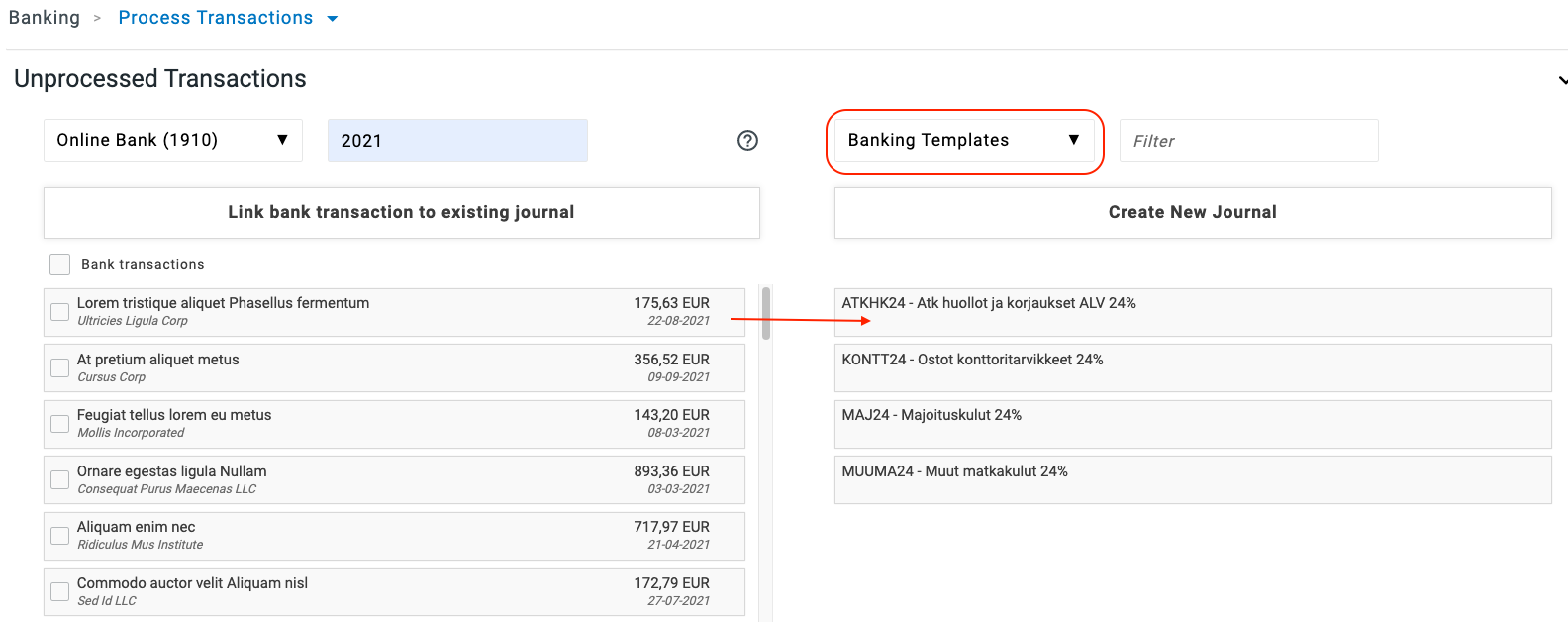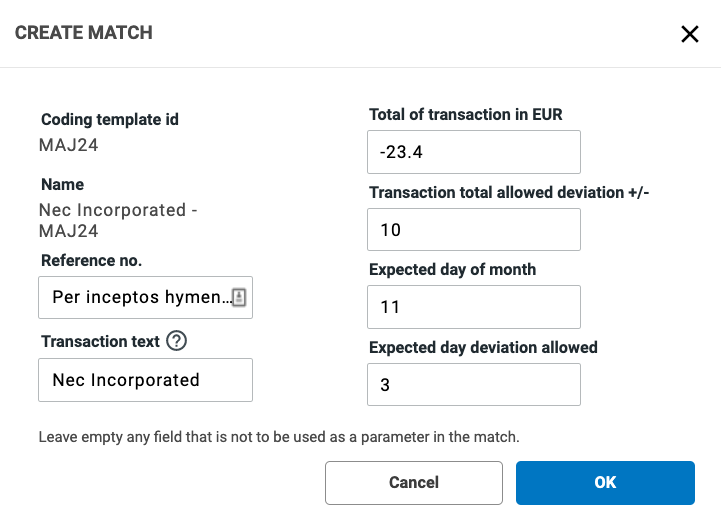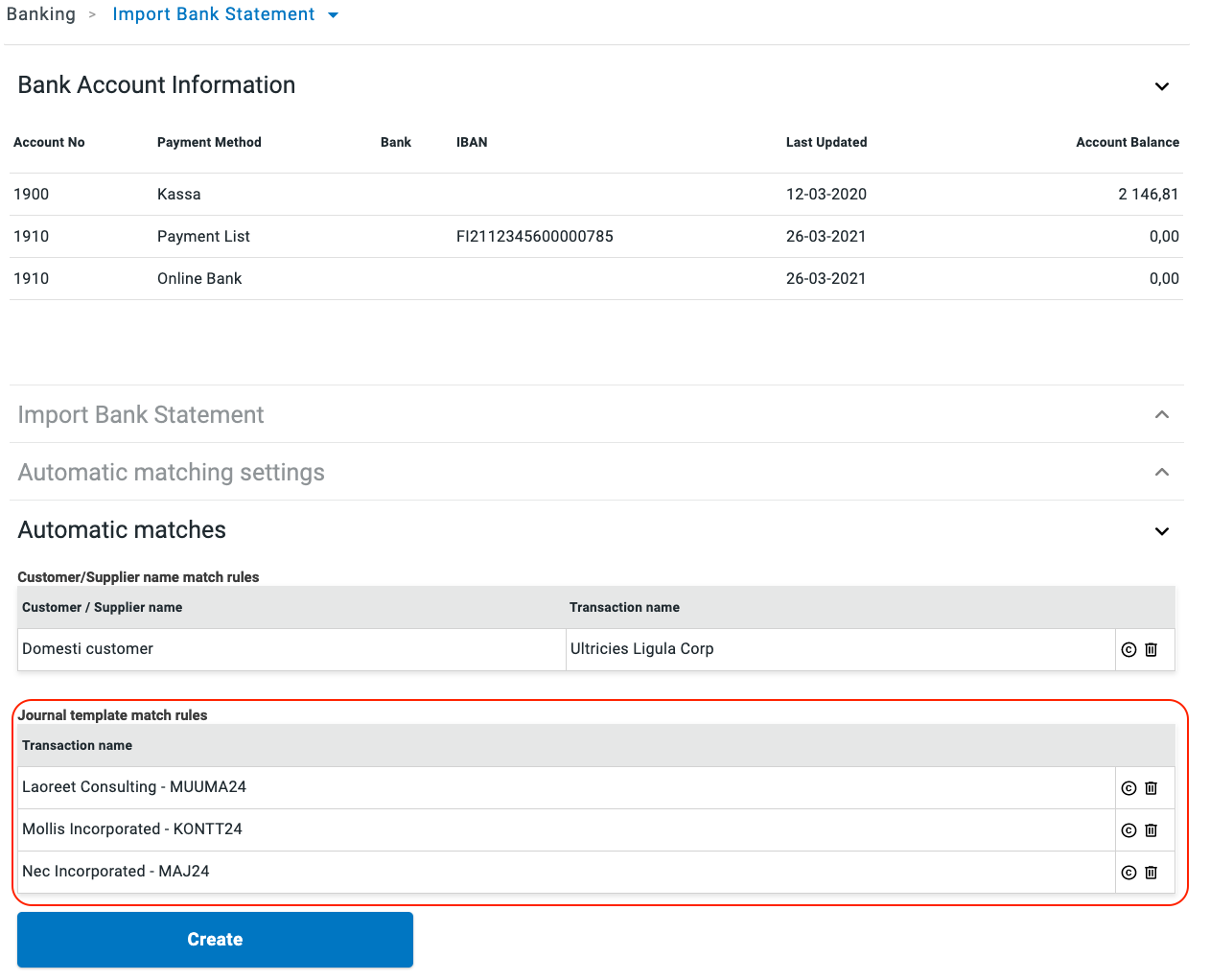When you have set up templates that can be used to code your banking transactions. You can also automates the matching with the help of a set of matching parameters you set up yourself.

Workflow:
- Go to Banking - Process transactions
- Select Banking templates in the right hand column
- In the section Unmatched transaction: Drag a transaction to a banking template (see above)
- You are asked if you want to create a match between the transaction and the template for automatic matching in the future.
-
Answer YES for a match modal to appear. Here you can enter the parameters for this match.
- The match is added to a match list under Banking - Import bank statement
NOTE: template matching as a functionality is activated automatically as you start matching.
The next time you work with banking:
- Templates and transactions have been matched according to your template matching rule and can be found under Matched transactions at the bottom of your screen.
- Click on the transaction to examine the match
-
If necessary, you can:
- Delete the match
- Change the template
- Go to manual coding to edit the journal
- When you are satisfied with your matches, click Process all
- Journals will be created from your matches. These can be found in the journal list and can be tracked to the bank statement.
- The transactions in the bank account statements will have a link to the journal created in by the match. See Banking and the Audit trail
The Match Modal
 The match modal offers the a number of match parameters which are listed below.
The match modal offers the a number of match parameters which are listed below.
NOTE: All parameters, except he Name & template match, can be edited or left blank if they are not to be used in the matching process.
-
In the Name field: The company & template name are input automatically as a match parameter. The match is both obligatory & automatic when the match is done while matching transactions.
-
The amount (Total of the Transaction in EUR) is taken from the transaction amount. Enter the amount as positive or negative to make sure a template only matches against transactions of the correct type.
- Transaction total allowed deviation +/- : enter for example 10 to get a deviation of +/- 10 Euro from the total transaction amount. Leave blank and no deviation from the amount will be allowed.
-
Reference number is taken from the transaction. This can also be a transaction text if there is no reference number.
-
Transaction text: Here accountants can enter keywords that need to be matched. In many payment cases the information imported here is the name of the company. A wildcard search (*) is available for this field. Use * to insert a wild card i your search and make it mor flexible.
-
Expected day of the month: is the expected transaction date, for ex the 15th every month, taken from the transaction.
- Expected days deviation allowed: enter for example 2 to get a deviation of +/- 2 days around the expected day of the month.
The Match List

When a match has been created it is automatically placed in the Journal template match rule list under the section for Automatic matches in the main view under Banking- Import Bank Statements.
From this table the user can:
- Get an overview of all the template matches in use
- See who created the matches

- Access the match parameters for each template and edit them
- Delete the match

- Create matches manually by clicking on Create.
Using Wildcards
The transaction text can be an exact match but it also allows for wildcards where * (asterisk) matches any text.
See below examples of valid matching rules:
- phone* (matches any text beginning with phone)
- *phone (matches text ending with phone)
- *phone* (matches text containing phone)

Comments
0 comments
Please sign in to leave a comment.